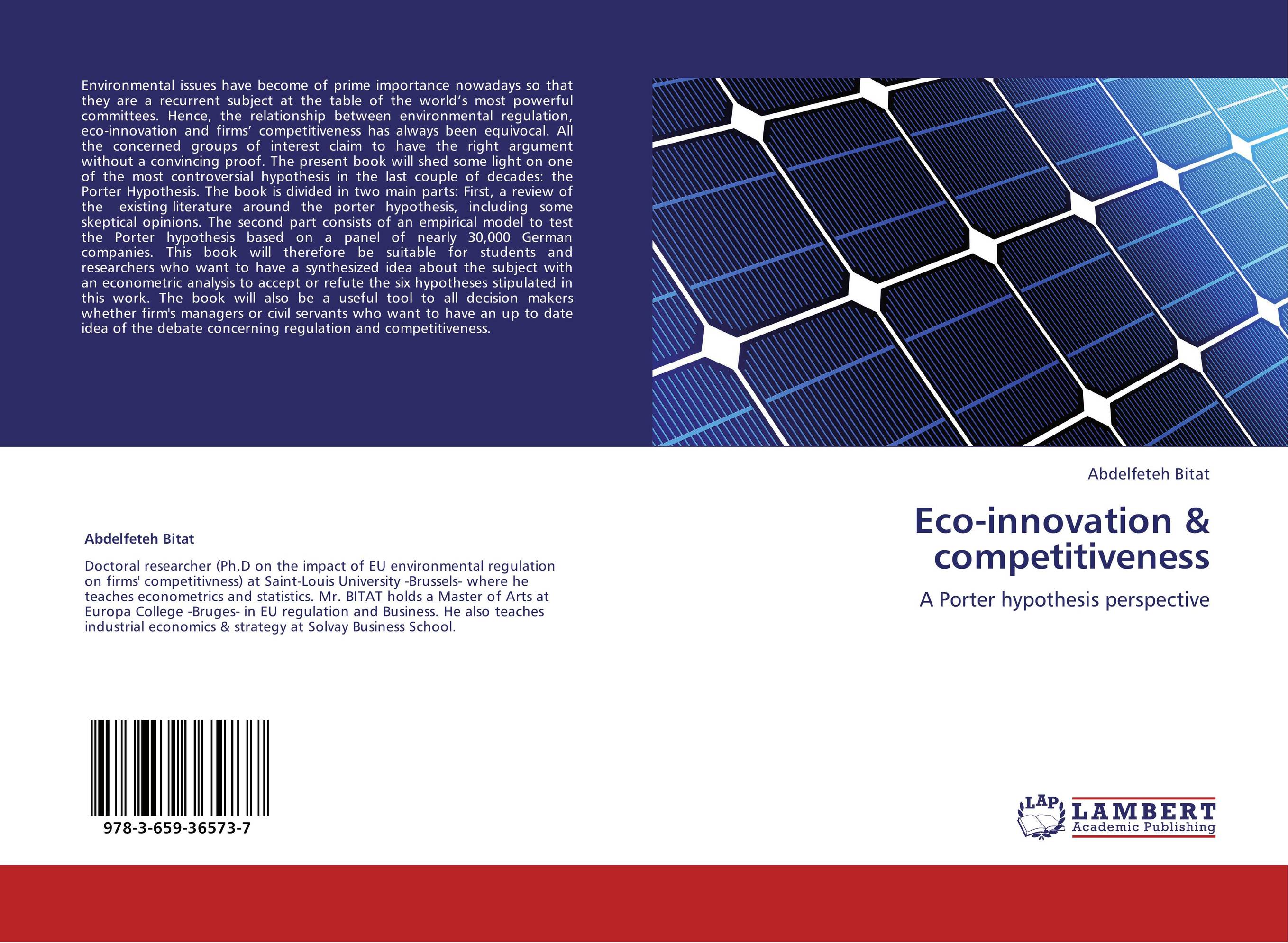| Поиск по каталогу |
|
(строгое соответствие)
|
- Профессиональная
- Научно-популярная
- Художественная
- Публицистика
- Детская
- Искусство
- Хобби, семья, дом
- Спорт
- Путеводители
- Блокноты, тетради, открытки
Eco-innovation & competitiveness. A Porter hypothesis perspective

В наличии
| Местонахождение: Алматы | Состояние экземпляра: новый |

Бумажная
версия
версия
Автор: Abdelfeteh Bitat
ISBN: 9783659365737
Год издания: 2013
Формат книги: 60×90/16 (145×215 мм)
Количество страниц: 64
Издательство: LAP LAMBERT Academic Publishing
Цена: 29932 тг
Положить в корзину
| Способы доставки в город Алматы * комплектация (срок до отгрузки) не более 2 рабочих дней |
| Самовывоз из города Алматы (пункты самовывоза партнёра CDEK) |
| Курьерская доставка CDEK из города Москва |
| Доставка Почтой России из города Москва |
Аннотация: Environmental issues have become of prime importance nowadays so that they are a recurrent subject at the table of the world’s most powerful committees. Hence, the relationship between environmental regulation, eco-innovation and firms’ competitiveness has always been equivocal. All the concerned groups of interest claim to have the right argument without a convincing proof. The present book will shed some light on one of the most controversial hypothesis in the last couple of decades: the Porter Hypothesis. The book is divided in two main parts: First, a review of the existing literature around the porter hypothesis, including some skeptical opinions. The second part consists of an empirical model to test the Porter hypothesis based on a panel of nearly 30,000 German companies. This book will therefore be suitable for students and researchers who want to have a synthesized idea about the subject with an econometric analysis to accept or refute the six hypotheses stipulated in this work. The book will also be a useful tool to all decision makers whether firm's managers or civil servants who want to have an up to date idea of the debate concerning regulation and competitiveness.
Ключевые слова: competitiveness, environmental regulation, eco-innovation, Porter hypothesis, ordered probit model



